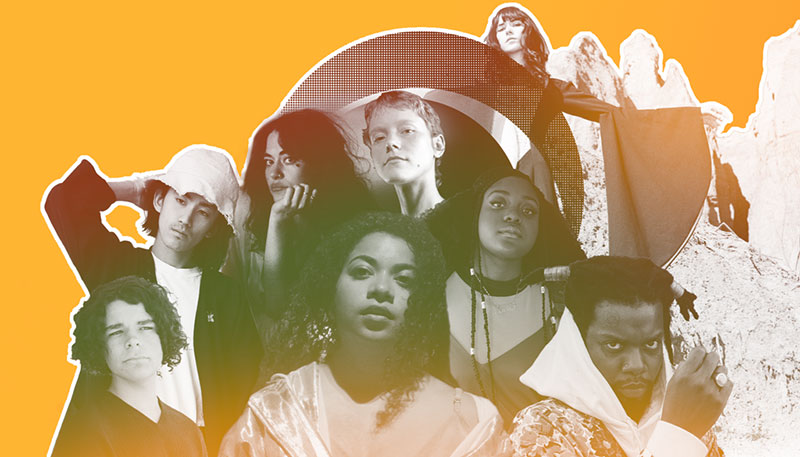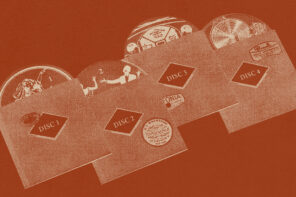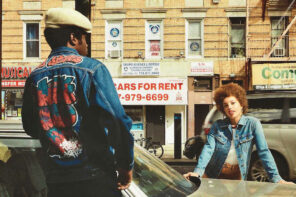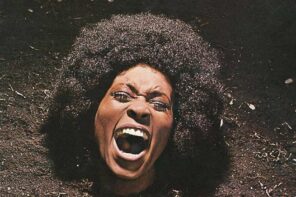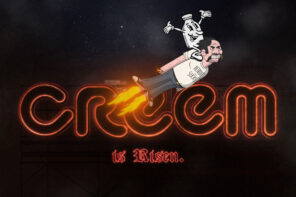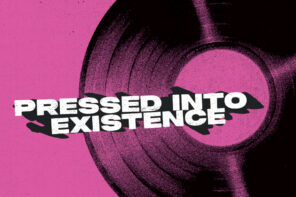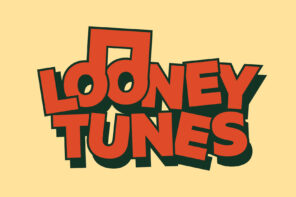Mixing it up. Troy Farmer of Raven + Crow Studio is back with installment two of Mixtape Interviews—every month or so sitting down to chat with a new artist from the mix.
In prepping for the second of our two Black Artist Database mixes earlier this year, I reached out to Canadian artist Thanya Iyer, whom I discovered through the database, about the possibility of doing an interview with her to accompany the mix…to which she kindly replied that she’s actually of Indian descent. She let the user-driven database know too, but I still really wanted to find out more about her and her music, which kicks off this new mixtape.
Her most recent album, KIND, blends genres to create its own hyper-melodic, highly rhythmic, rich sound that equally soothes and excites.
We spoke recently about the inspiration behind her album, how things are going in the vibrant Montreal creative scene these days, and taking time to breathe.
Troy: So I feel like it’s kind of funny? I don’t know if that’s the right word, but it’s interesting—the reason I’m talking to you is I really like your music. But when I originally reached out, and the way I found you…I was like, “Hey, we’re doing this Black Bandcamp mix,” and you’re like, “Oh yeah, I’m not black.”
Thanya: Yeah.
Troy: I feel like a lot of us, myself included, have done a lot more of what I would’ve considered uncomfortable talk about race and culture and trying to make it not uncomfortable and just being able to talk about it. And for some of us, that’s very inherent to who we are and what we do. And I was wondering if any of that fed into KIND.
Thanya: I mean, definitely. I feel like I’ve come to a lot of understanding in the past year. Even just the name. People have been saying Tanya, pronouncing my name differently or wrong for my entire life. And I’ve had lots of hard memories about it, even just in elementary school when people are mean, or teachers who would say Thanya and say things in different ways. And I think we’ve all learned how to use our voice to just speak for what we need and what feels good. And I realized that I’ve come into just a new place of understanding who I am more.
And that’s kind of what this album was about, too, just all this kind of self-discovery. And the name thing was a huge thing for me in the past year—realizing what felt right for me and what felt wrong for me and kind of trying to assert those boundaries. And telling my friends, “Hey, feel free to switch between Thanya and Tanya because I feel really good with those two.” So that’s just one element of just the whole world of trying to navigate your identity and who you are and trying to make peace with that and be okay with accepting and loving yourself.
Troy: That approach of both coming from a self-care angle and also coming from just what it means to be who you are, both to yourself and to others. And what perspective means, wrapping that up. I feel like I feel that from the album at least. I wonder if I had listened to the album two years ago if I would have thought about it in the same context.
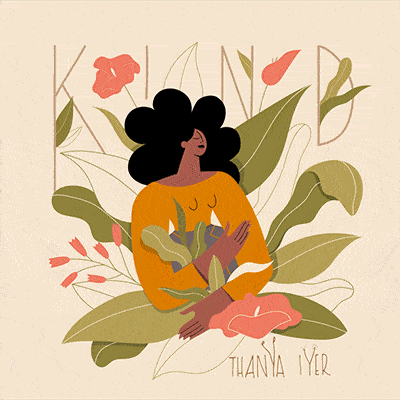
Thanya: Yeah. I think I’m kind of in a phase in my life, it’s always this discovery—a look inside kind of thing. And so I never think of the album or all of the songs as a whole narrative when I am writing them. And that’s not usually how I write, actually. But when I looked back and I was like, “Hey, we’re ready to record” and saw all of these songs, I realized that yeah, there was kind of a narrative through it. And I remember talking with my bass player about it, and he kind of coined KIND as the title. When I was explaining all the meanings about all of the songs, it’s got that theme of self-love and humankind and differences. All of that kind of all came through with it—all of those different meanings and how we all see things from different perspectives and how we’re all in different places of learning and growth. It all kind of seemed to fold into each other a little bit.
Troy: Yeah. That’s awesome. I love that. So I read you play the Indian violin—I’m not familiar with that instrument.
Thanya: Yeah. So it’s just a violin, but the Indian violin—there’s Indian classical violin and it’s just a style. So I wouldn’t say that’s the style that I play when I’m playing music in this band, but I would say that it’s definitely something that I’ve spent a lot of time doing in my life and learning. And also classical music—I learned that. And they all kind of mesh into the sound that I make with the violin. But yeah, they have small little influences in my playing for sure.
Troy: Yeah, it’s funny, I feel like most people who write music do so through whatever instrument they’re most familiar or most comfortable with. Do you write songs on the violin, or are you writing more with synth or piano or something else? Or is it all over the place?
Thanya: There are some songs on that album that I wrote on the violin first, and it stayed that way. But mostly I write on the piano or the synth, mostly the synth for that album.
Troy: I’m just picturing writing a song that you’re also singing with the violin and feel it would just pragmatically be kind of difficult, but I guess if you’re really good at it, that’s awesome.
Thanya: It’s something that I used to be not so good at, singing and playing violin. I’ve just done it for, I guess 10 years now. So you just keep at it until it gets better and better. But singing and playing can obviously come really easily. And that’s how the songs come in, too. Like you’ll be improvising on the synth, and then chords kind of come together, and then sometimes the whole song just comes in a couple of minutes, as if there’s some moments of flow where things just come out.
Troy: Yeah, that’s awesome. So we run a creative agency and graphic design company down here, and I love the artwork for the album. Who did that?
Thanya: Emilie Muszczak. She is an artist based in France. She used to live in Toronto. And I had gotten into this GIF phase where I was just like, “GIFs are amazing, I love them.” And I wanted to learn how to make them and learn how to use Adobe. And I just found her, and then I just emailed her being like, “How do you make this? Also do you freelance and would you want to collaborate on some art?” And so we kind of were chatting. And she’s amazing. She did a full poster. She drew everyone who performed and collaborated on the album, all the musicians and visual artists in the final insert. It’s this beautiful world oasis.
Troy: That’s awesome. Yeah. So you are based in Montreal now as well?
Thanya: I am.
Troy: And you grew up there, right?
Thanya: I grew up here, yeah.
Troy: I’ve been to Montreal once and it was a million years ago. I actually went to a couple of shows there and I feel like the music scene seemed pretty vibrant to me at the time. It seems like it probably is so now as well. Is that the case?
Thanya: Yeah, it’s slowly coming back. There’s a really great music community and some great artists based here. A lot of cool scenes and great venues too and good places to hang so you can walk into a venue and just be with all your friends and chat, which is really great. Pre-pandemic there were some cool DIY spaces and I hope that they come back soon. We’re still not fully open here. Things are slowly coming back though. And also people, like organizations like POP Montreal have still been doing their festival and kind of adapting it and putting on lots of shows and supporting the community in many ways. And also Resonance Cafe, which I really love that place, has been putting on a livestream series that I’m helping curate. So it’s cool, people are doing a lot.
Troy: That’s great. There are a lot of Canadian artists that I really enjoy and I’ve enjoyed for a long time. And I feel like the government seems to support the music scene and independent artists through certain foundations. Is that the case?
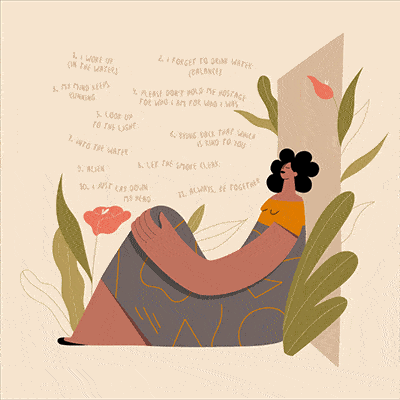
Thanya: Yeah. We have a really great grant organization here, like Canada Council for the Arts. And there are more provincial kinds of things. And they really support artists and labels and venues, like nonprofit organizations. There’s great support for the arts. So it’s cool. It’s really great.
Troy: It’s just great that that’s recognized as something so important at that level. So often it’s not on so many levels down here, be it schools or government funding or through foundations. It’s just sadly often not the case.
I noticed it looks like you’ve got a show coming up in September though. Is there more booking happening? Do you feel like you’re going to try and tour? I know you said you were working on some new recordings.
Thanya: Yeah. So we do have a show coming up at the end of September just for POP Montreal. It’s a music festival that’s been around for quite a while over here and has done some great things in the community. It’s an outdoor show, which is super fun.
I’m really excited about the venue. It’s two minutes from my house. I’m not really sure what the backstory of the venue was, but I’ve been noticing it this summer and it’s just this industrial space that I think maybe used to be an old building or something like that.
I think it’ll be really fun to play a show there. I love playing outside. We’ve been doing a couple things over the summer. It’s been great to just slowly pace ourselves back into it. I’m going to be doing a year of school this year so I don’t know how many tours will happen, but I will be doing some recording in the fall. At least trying to figure out how to plan things again. I think I lost that muscle a little bit.
Troy: Everyone’s kind of going through the same kind of thing, whether you’re an artist or an audience, the fits and starts. Things seem okay, now they don’t seem okay. No one knows what’s going on. But I don’t know, I’m hopeful at least.
Thanya: Yeah. Last March, I was trying to push a couple of things for awhile and finally shut off that part of myself that wants to plan, and now trying to get it back but it’s very complicated because I also like the pace of moving slower through things. It just makes it a little easier in realizing that there’s no rush to do everything. And want to just remember that feeling of it’s okay, no rush, and how good that felt too after being kind of burnt out also from doing too much.
Troy: It’s been talked about a lot at this point, but it doesn’t make it any less true. I feel like there are really good things that we can appreciate that came from this really bad thing. And that’s definitely one of the things, and I think one of the lessons that we should all try to take from this. Especially employers. I’ve read too many stories of people just being forced back into the office and just breaking down because they’re just like, “I was able to get everything done and hang out with my kids and do it from home and now I have to sit in this cubicle and I’m wildly depressed.”
Not to focus on the negative.
But your point is a great one. I feel like anyone, especially in the creative field, should be able to just slow things down and not run around and rush. It is almost inevitably good for the creative process, regardless of what you’re doing.
Thanya: Yeah. And even remembering that feeling, even when things are wild and busy and trying to keep that slowness. I remember going to this meditation class and I was late. When I got in the teacher was just like, “Don’t rush. Just don’t rush.” And I was just like, “Oh my god, that’s awesome.” I’m never going to rush anywhere because it doesn’t matter. Because I can’t change the outcome. I can only try my best beforehand. Hopefully when I have to start going in person to things again, I’ll be on time because the pandemic changed me or something.
Troy: I mean, yeah. I feel like you can count on your hand the number of times that rushing or stressing actually made something better.
Thanya: Yeah, it really doesn’t. It really doesn’t.

